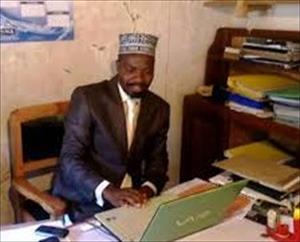(Ahlul Bayt News Agency) - Anticipating the looming elections, a leading Islamic organizing has been encouraging Malawi Muslims to participate in local politics to get a better chance in changing laws affecting Islam and Muslims in the southern African country.
“Since the country attained independence, the involvement of Muslims in politics has been the lowest leaving Malawians of other faith groups to dominate the control of government and other state institutions,” Alhaj Sheikh Jafari Kawinga President of Musford told OnIslam.net.
Kawinga was summing up how the participation of Muslims in politics has been the lowest in the largely dominated Christian nation since independence in 1964.
The Muslims abstaining from participation was largely attributed to to rising incidences of various forms of discrimination and marginalization Muslims have been going through over the years.
“The post-independence government of the country’s founding president the late Hastings kamuzu Banda had treated the Yao tribe, which has the country’s highest number of Muslims with hatred and suppressed them in the process,” said Kawinga.
“They suffered various forms of persecution, because at the dawn of independence, this tribe was already well enlightened and was exposed to the British Colonialists, as a result, this tribe wielded much influence, this therefore couldn’t please the president who felt threatened by the level of influence the tribe enjoyed,”
As a result, Kawinga added: “Muslims through this tribe went through various forms of persecution and abuse at the hands of mercenaries of the regime. Some of them died and others fled into exile. From that time, until recently, a lot of Muslims in Malawi have been afraid to take part in politics for fear of the same. Most of them are just spectators.”
Kawinga also noted that lack of sound education among most of the country’s Muslims was another factor affecting Muslims’ participation.
“In the past before and after independence, most schools in the country were being run by Missionaries,” he said.
“For Muslims to enroll in those schools, they were being converted to Christianity, most them therefore chose just to stay at home. It is on this basis that most Muslims were being denied their right to education.”
Islam is the second largest religion in Malawi after Christianity.
Muslims account for 12 percent of the country's 14 million population. But MAM puts the number at 36 percent according to the census it conducted a few years ago.
Currently, the country’s 193-National Assembly has only 12 Muslim members of parliament.
Mobilizing Muslims
In order to change the status quo, different Muslim organizations in Malawi were organizing programs to encourage Muslims’ engagement in politics as possible candidates.
“We have adopted a deliberate program to increase the active participation of Muslims in politics to enable them take part in the elections,” Alhaj Sheikh Kawinga said.
“At the end of the day, we should have a fair representation in both executive and legislative arms of state to help us lobby for laws which could be in our favor.”
Kawinga’s organization has been accredited by the country’s electoral body, Malawi Electoral Commission (MEC) to provide civic and voter education in the runner-up to the polls.at
He noted that Musford was conducting sensitization workshops in the Muslim communities, among other places to encourage Muslims to massively participate in the elections as candidates.
“We are also reaching out to Sheikhs in mosques to encourage Muslims who have the means in their areas to come out and participate in the elections as local leaders, he said.
“In this way, we should be able to change things even from the grassroots level. Because, we feel that if we have numbers, it will be easy for us to change certain laws which have been working against us over the years,” he added.
Muslim Scholar and Chairperson of the Supreme Council of ULAMA in Malawi, Dr. Imran Shareef said massive participation of Muslims in frontline politics ”could be the only way to create effective channels of communicating our grievances for redress.”
“We can’t let this status quo to remain as it is. This situation compels us to rise up and fight for ourselves. Nobody will do that for us. The moment we have a good number of Muslims in parliament and in the executive, we will be assured that we have the means to channel our concerns.
“If we just sit and watch, the situation could generate into something very bad for Islam in Malawi. Because, we are very few during the time decisions are being made, we are always at the receiving end,” Dr. Shareef, former Acting chairperson of the Public Affairs Committee (PAC) a quasi religious organization which fought for the re-introduction of pluralistic politics in the country in 1993, added.
The country had its first Muslim president in 1994, Bakili Muluzi who is highly credited to have created a “conducive atmosphere” for Muslims to worship without let or hindrance.
In 1999 and during Muluzi’s term, the end of the Holy month of Ramadan was declared a public holiday.
“Malawi belongs to all of us irrespective of our religious affiliations. Therefore, it’s of paramount importance that we should all take part in managing the day to day affairs of the nation,” said Kawinga.
“Most Muslims today are well educated. Education therefore should no longer be an excuse.”
/149

